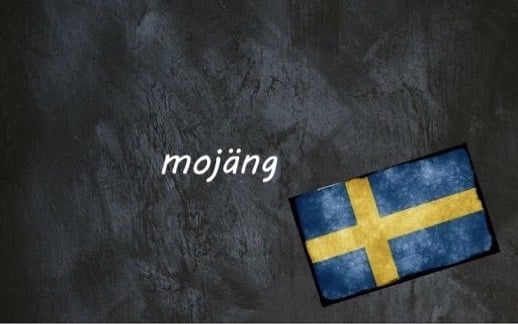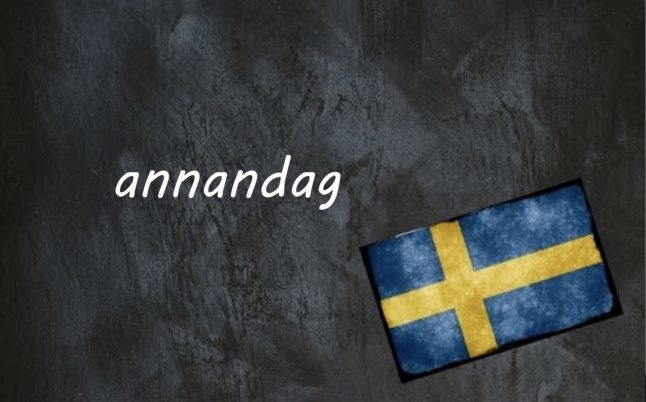A mojäng is a ‘(technical) object, often with unclear function’, sort of ‘a gadget’. This word has no Swedish root, instead it is French. Coming from the French word moyen, the spelling of mojäng funnily enough matches the Swedish pronunciation of the French word, or possibly the pronunciation of a French person from Marseille saying it.
So what does moyen mean?
The same as ‘means’, as in ‘the means to do something’. Is it strange that ‘means’ has become an object in Swedish? Perhaps not, if you know that moyen, also means ‘average’ in French, and you know that moyen comes from ‘medium’ in Latin, which means ‘middle’, and which has as one of its meanings ‘something intermediate in nature or degree’. Perhaps this can be interpreted as meaning a thing which is experimental, average, and in between finished objects. Close to ‘a gadget’. But that is mere conjecture, and does not quite explain how this word came to have its current meaning.
Mojäng has been around since 1861, and it seems that before that time it used to have the same meaning as its cognates in English and French, that is ‘means, resort, opportunity’. But it also had a wider application, such as ‘approach’ or ‘actions’ when used in past tense. It could even be used about a person’s talents, which kind of makes sense as they are a person’s ‘means’.
Today, mojäng is no longer used in any of its traditional uses. It is always in reference to an object, a strange object, or an object whose use you might be unsure of. Mojäng has quite a few synonyms in Swedish, for example, grunka, mackapär, pryl. It seems like Swedes like this kind of word.
You can make use of mojäng in any situation where you want to have a look at a certain object which you are unfamiliar with. You just ask if you can have a look at the mojäng over there. Or asking what that mojäng is. Don’t forget to use the definite form mojängen.
Example sentences:
Kan jag få kika på mojängen där?
Could I have a look at the gadget there?
Vad är det där för mojäng?
What sort of a gadget is that?
Villa, Volvo, Vovve: The Local’s Word Guide to Swedish Life, written by The Local’s journalists, is now available to order. Head to lysforlag.com/vvv to read more about it. It is also possible to buy your copy from Amazon US, Amazon UK, Bokus or Adlibris.



 Please whitelist us to continue reading.
Please whitelist us to continue reading.
Member comments